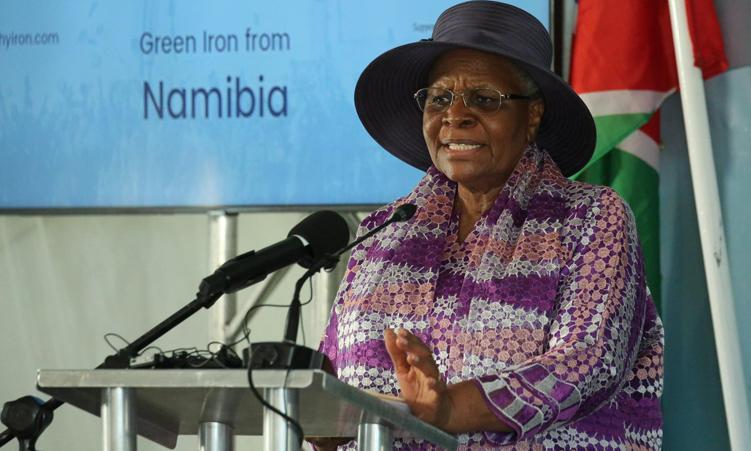Africa-Press – Namibia. Political analysts say president Netumbo Nandi-Ndaitwah must move beyond speeches and take concrete steps to unite the nation.
This follows her call to the nation at the inaugural Genocide Remembrance Day commemoration on Wednesday, where she said she does not want to lead a divided nation.
“I do not want to lead a divided nation. Therefore, we should not cause unnecessary divisions when we should unite to advance the interests of our communities and our nation,” she said.
Her remarks follow resistant sections of the Ovaherero and Nama communities, who rejected the government’s proclaimed 28 May as Genocide Remembrance Day.
These sections claimed that the day was imposed without proper consultations.
Nandi-Ndaitwah urged all affected communities to remain united.
“We may have gone through different histories under German colonialism and apartheid occupation.
I must emphasise that since March 1990, we have a shared Namibian history, which is the foundation for our peace, stability and unity,” said Nandi-Ndaitwah.
Political analyst Henning Melber says unity requires more than words.
“Instead of speeches urging Namibians to stay united and avoid division, she must appeal to her administration instead,” he says.
Imposing memorial celebrations unilaterally without adequate involvement of traumatised descendants of survivors of the genocide is not unifying, but dividing, Melber says.
He says the absence of key representatives from the affected communities at the remembrance day reflected a lack of inclusion from the state.
“The Joint Declaration with Germany, like the remembrance day, has not offered an adequate direct voice and representation of the indigenous communities mainly affected by the genocide and its consequences until today.
Their refusal to comply is inflicted by the government,” he says.
Melber adds that if the president wants to lead a united nation, her administration should practise inclusive politics.
“To complain that agencies of the Ovaherero, Nama and Damara remain absent in protest over not feeling represented adequately at the event, this points a finger at the government’s failure, not at those who boycott the ceremony,” he states.
Melber says the state must correct its handling of the matter if it wants to avoid fuelling further divisions.
Political analyst Ndumba Kamwanyah, says Nandi-Ndaitwah can still unify the country but it will take listening and decisive action.
“She should listen to all voices, especially those affected by the genocide and Cassinga.
She should also promote healing via continued efforts to address historical injustices, like the genocide negotiations with Germany,” Kamwanyah says.
He says her earlier calls for “unity in diversity” and warning against tribalism shows intent but added that more consistent engagement is needed.
“Encourage respect by teaching people to value each other’s cultures and histories. Empowering young people to lead in building a united future,” he said.
WORDS MUST HAVE MEANING
Former deputy minister of higher education, technology and innovation Natalia /Goagoses says the president’s call for unity and reconciliation are very powerful but should have meaning.
“All the words that were said by the speakers, it must have meaning. It should be internalised by every Namibian and we must leave it.
We cannot speak of unity and peace when we turn our backs, then we are divided.
We are not giving good examples to youth,” she says.
For More News And Analysis About Namibia Follow Africa-Press






